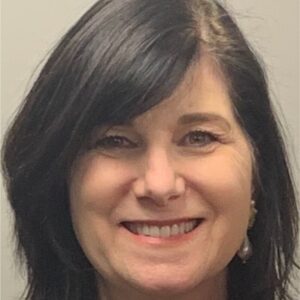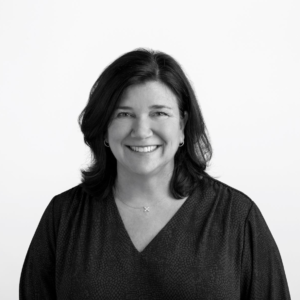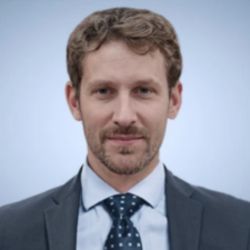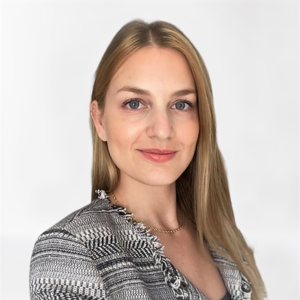Train to retain
Healthcare organizations have faced a torrent of change, from the implementation of healthcare reform and other significant regulatory changes to disruptive advances in technology. Long-term care (LTC) providers in New York State have faced an additional change that also presented a huge opportunity: a state mandate for Medicaid patients needing significant LTC services to enroll in managed care plans.
These factors have redefined the competitive marketplace for CenterLight Health System, a nonprofit provider of rehabilitation and short- and long-term healthcare services based in New York City. We have introduced a series of sustainable improvements to make the most of the opportunities and challenges we face.
A central part of this process is to create, from scratch, an organizational development program at CenterLight with three goals in mind:
- to improve training and coaching;
- to drive a performance-based culture; and
- to develop more career paths for employees and reduce the need to seek skilled employees from outside of CenterLight.
As hard as this work is, we have one built-in advantage. CenterLight has a hunger and passion for learning that sets it apart. In many industries, continuing education and training are seen as a necessary evil. At CenterLight, it is a huge imperative for success because the world of healthcare is changing so much and so rapidly.
TRAINING TEAM LEADERS
Our organizational development program focuses on strengthening several key abilities in our managers:
- Managers are coached on how to conduct crucial conversations when there is potential for conflict that can have a long-term effect on productivity and job satisfaction. They have access to materials they can draw on for crucial conversations ranging from disseminating tasks to building a collaborative team where everyone has a vital role.
- In healthcare, team-based models of care are growing more important, so we are strengthening the interpersonal skills of our managers. Our orientation process used to be segmented, with different processes for our nursing centers, our health plan and the corporate office. Now, we have a single orientation, building relationships across departments and ensuring everyone learns the bigger picture of what CenterLight is trying to accomplish.
- We developed training for managers on employee and labor relations, to ensure a consistent approach to these matters. The training began with small group sessions, using role-playing exercises and other methods to teach managers concepts needed to gauge situations and determine the right response.
- Managers are learning how their interactions with employees should complement corporate communication efforts to convey the vision and strategy of CenterLight to employees. We train managers in both written and verbal communications to enable them to have a constant stream of touch points with employees.
- We also are training managers to help their employees handle change in their work environment and the skills required of them to do their jobs effectively.
We have vastly expanded training and continuing education through a computer-based system that offers 300 managerial courses. We also provide one-on-one, personalized coaching for executives at the level of vice president and higher in our organization.
PURSUING SUSTAINABLE PERFORMANCE
A major focus of our work with managers is to ensure they are driving a performance-based culture at CenterLight. It is not only about what goals they achieve but how they achieve those goals that matters. This emphasis is at the heart of ensuring that we build sustainable internal systems, processes and expectations.
We use a performance manager system to track all of the feedback managers give to their direct reports, which are used as the basis for employee reviews. The system also sends reminders to managers to provide feedback. For example, tasks and goals for each employee can be logged in the system, and then it prompts managers to check on progress as the due dates approach.
Expanded competency training for employees forms the backbone of a performance-based culture. Employees feel empowered when they are given the tools to help them deliver the performance that is expected of them.
TRAIN TO RETAIN
We use training to expand career paths and help our employees improve their skills so they can better adapt to rapid change in healthcare. For example, under a state grant, we are providing opportunities for certified nursing assistants and licensed practical nurses to continue their education. This program is expanding from nursing homes to home health, as employees in the home setting are being called on to do more as the first line of defense in the healthcare system.
With our registered nurses, we train them on the skills they need for our team-based approach to care, such as customer service, and managerial and organizational skills. Technology is a huge change for nurses because they often have used paper records for their entire careers and lack the working knowledge that new information systems require. They are trained on clinical (both electronic health records and clinical decision support) and customer-relation management software systems.
Another key element is our new employee onboarding program. Over a new employee’s first six months, she meets regularly with a mentor, can choose from a variety of educational opportunities and interacts regularly with the human resources department.
LEARN OR PERISH
A healthcare organization that is not committed to continuous learning is probably not going to survive in the topsy-turvy healthcare world of today. A strong organizational development program is critical for both sustainability and growth in a healthcare organization. Your workforce won’t be flexible enough to embrace innovation without a formal education and training program that keeps employees’ skills and knowledge up to date.
Organizational development also is the key to keeping great talent in your organization. If your organization fails to offer training, education and career paths, great employees will move to an organization that does.
Christina A. Murphy, EdD, PHR, is Corporate Director of Organizational Development for CenterLight Health System, a nonprofit provider of rehabilitation and long-term healthcare services based in the Bronx, NY.
I Advance Senior Care is the industry-leading source for practical, in-depth, business-building, and resident care information for owners, executives, administrators, and directors of nursing at assisted living communities, skilled nursing facilities, post-acute facilities, and continuing care retirement communities. The I Advance Senior Care editorial team and industry experts provide market analysis, strategic direction, policy commentary, clinical best-practices, business management, and technology breakthroughs.
I Advance Senior Care is part of the Institute for the Advancement of Senior Care and published by Plain-English Health Care.
Related Articles
Topics: Articles , Executive Leadership , Leadership , Staffing











